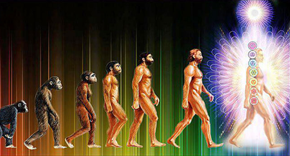Alfred Adler believed the concept of Movement was his greatest contribution to understanding personality.  He wrote: Everyone carries within himself an opinion of himself and the problems of life, and a law of movement which keeps fast hold of him without his understanding it or giving himself an account of it. The law of movement in the mental life of a person is the decisive factor for his individuality. The declaration of this law was actually the strongest step Individual Psychology has taken. We have always maintained the view that all is movement. (Ansbachers, 1964, p. 87)
He wrote: Everyone carries within himself an opinion of himself and the problems of life, and a law of movement which keeps fast hold of him without his understanding it or giving himself an account of it. The law of movement in the mental life of a person is the decisive factor for his individuality. The declaration of this law was actually the strongest step Individual Psychology has taken. We have always maintained the view that all is movement. (Ansbachers, 1964, p. 87)
Movement through life may be thought of as proceeding along a guiding line leading toward one’s ultimate guiding goal. All events, thoughts, and actions describe that line and are oriented around it. Adler spoke of all one’s actions being able to be traced on “the graph of life, and said “We can never know what actions will characterize a man if we know only whence he comes. But if we know whither he is going we can prophesy his steps and his movements towards his objective.” His major student, Rudolph Dreikurs, said that one could connect an individual’s important life events and so plot a person’s life goal and direction “like points on a line.”
Although all of life is movement, not all movement is useful. Some movements may distract the individual’s movement toward worthwhile goals, or move the individual toward goals which are not worthwhile. Adler described “neurotic types of movement” by which individuals prevent their positive forward movement: distancing, hesitating, detouring, and the “narrowed path of approach.”
The idea that life can be described in terms of movement along a path is, of course, hardly new with Adler. Major world religions speak of the “journey” or “way” of life. And we find the idea in such folk sayings, such as: “falling behind,” “hitting a bump in the road,” “going astray,” “being in a rut,” “catching sayings. It’s interesting that men, more than women, and “executive types” (male or female) tend to find this easier. I wonder if it has to do with something cultural: men more than women, and business-types more than non-business-types, tend to think in terms of “movement.” Which reminds us of another saying: “the rat race.”
In LEAP classes, I ask members to think of how such Movement through life may be thought of as proceeding along a guiding line leading toward one’s ultimate guiding goal (Adler’s categories). All events, thoughts, and actions describe that line and are oriented around it. Adler spoke of all one’s actions being able to be traced on “the graph of life, and said “We can never know what actions will characterize a man if we know only whence he comes. But if we know whither he is going we can prophesy his steps and his movements towards his objective.” His major student, Rudolph Dreikurs, said that one could connect an individual’s important life events and so plot a person’s life goal and direction “like points on a line.”
I also find that clergy tend to find this an easy task. Their thinking, especially as they consider sermon topics, often involve the concept of movement, the future, life as a journey, etc.
(from The LifeCourse Institute of Adlerian Psychology)









































